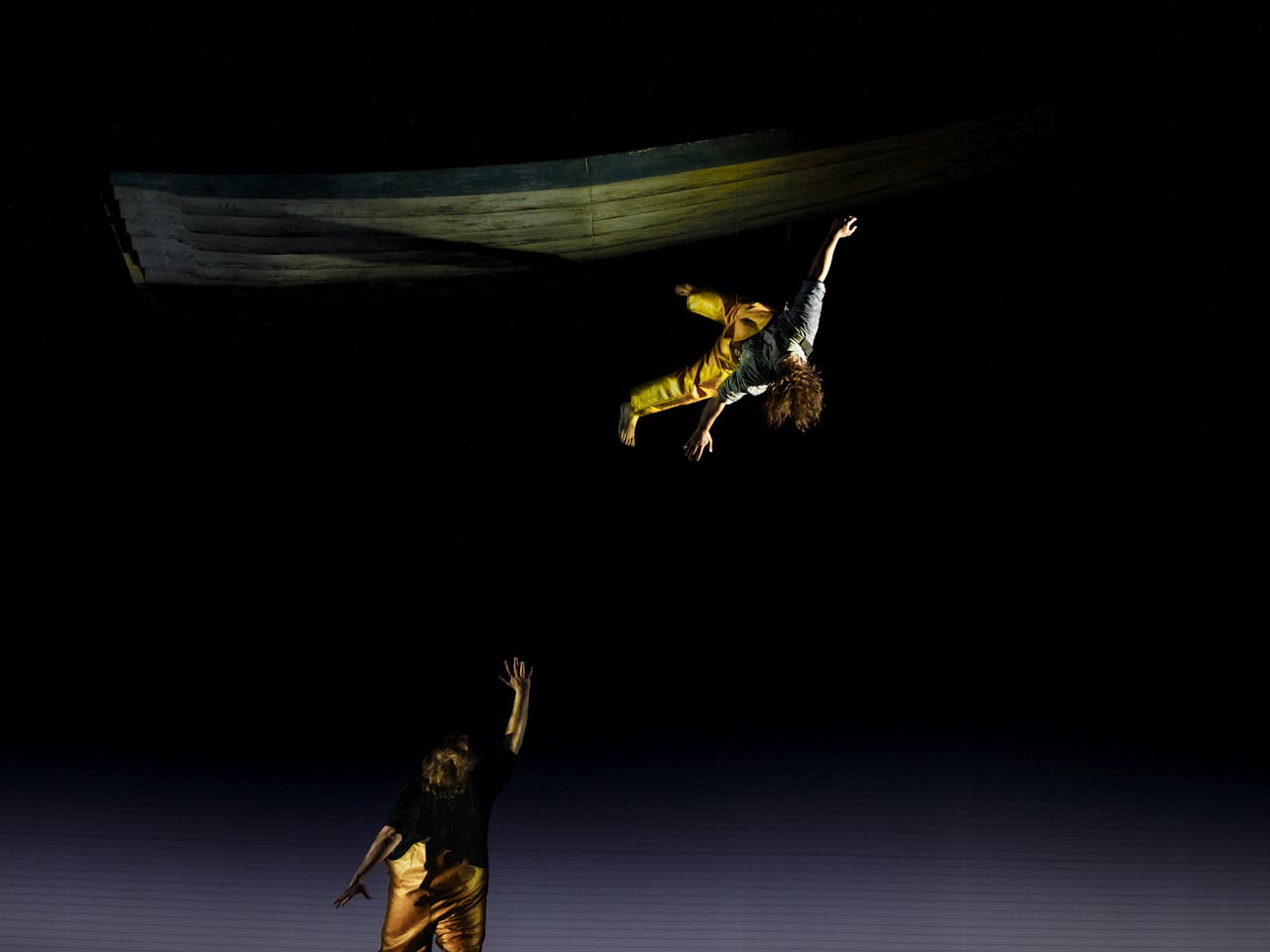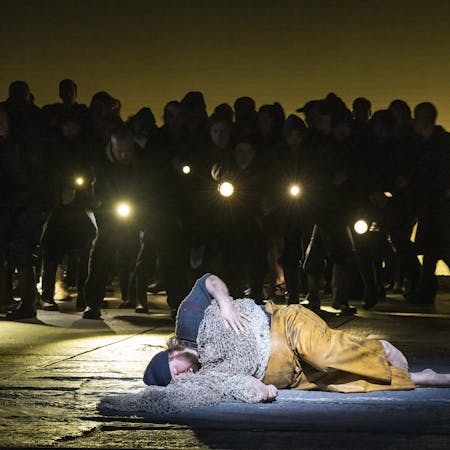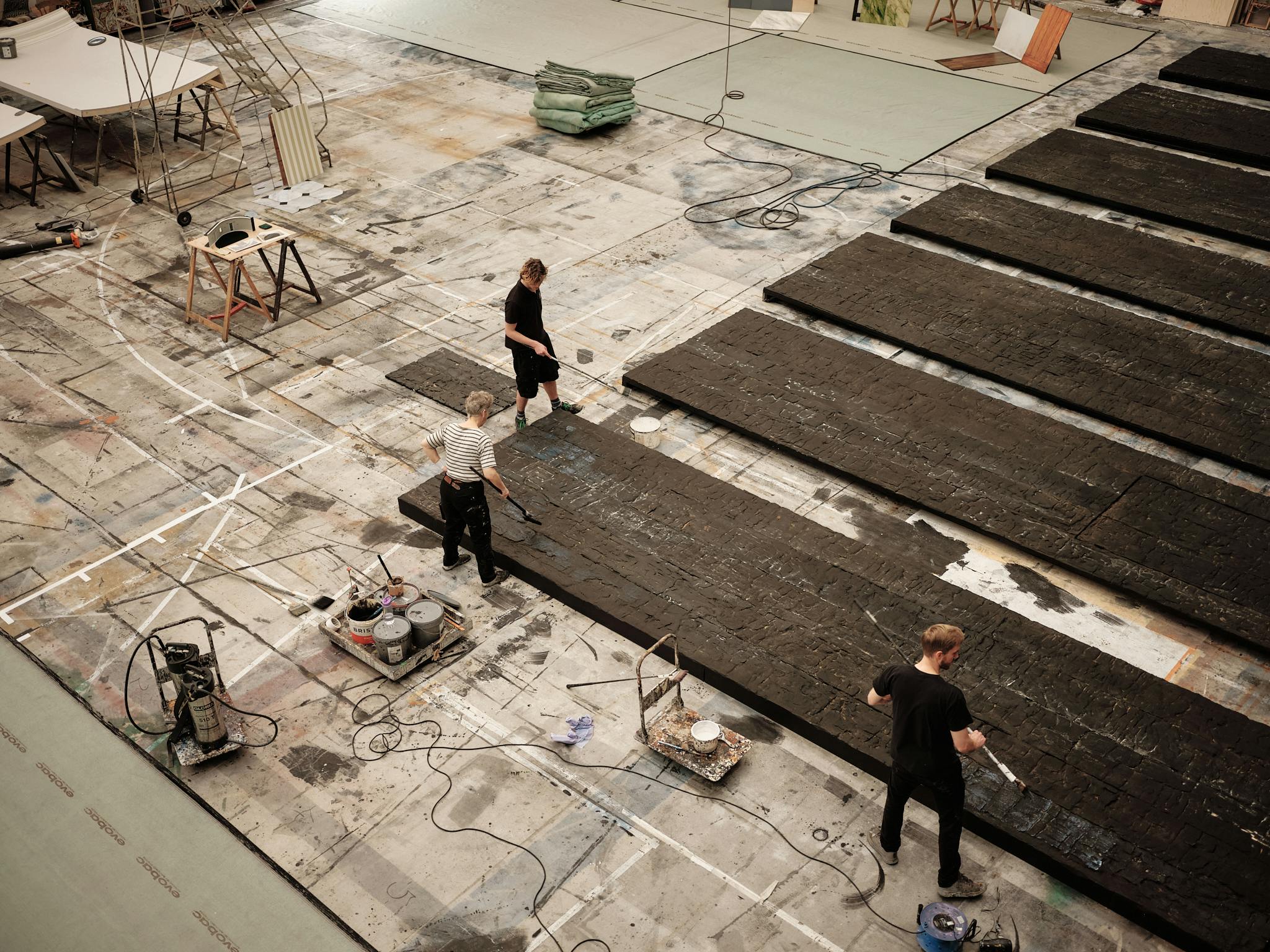Peter Grimes
Peter Grimes
Peter Grimes
In a close-knit village, an exiled man turns to the punishing sea.

Britten’s brooding opera returns. Deborah Warner’s staging foregrounds the vulnerability and volatility of the shunned Peter Grimes, and the tragic conflict between the individual and group.
Britten’s brooding opera returns. Deborah Warner’s staging foregrounds the vulnerability and volatility of the shunned Peter Grimes, and the tragic conflict between the individual and group.
Teatro Real, Madrid, Teatro dell'Opera di Roma and Opéra National de Paris
Royal Ballet and Opera Principal Julia Rausing Trust

The Britten Production Syndicate and Royal Ballet and Opera Patron
A storm is brewing

Peter Grimes, a fisherman in a small coastal town, is accused of mistreating his apprentice, who has died under mysterious circumstances at sea. Though cleared of legal guilt, he faces the judgment and hostility of the villagers. Determined to prove himself, Peter takes on another young apprentice. But against the harshness of the sea and increasing pressure from the village, his fragile grip on reality begins to crumble. Tragedy strikes again when the second apprentice dies. Consumed by guilt and madness, the alienated Peter returns to the sea.
Background
Allan Clayton, Bryn Terfel and Maria Bengtsson star in Britten’s bleak operatic parable, in which the dark undercurrents of paranoia and mob mentality lead to a turbulent, haunting end. Deborah Warner’s (Billy Budd, Wozzeck) stunning contemporary staging – which had its premiere in 2022, as part of The Royal Opera's Britten Cycle – illuminates the humanity of the shunned Grimes, while Britten’s evocative score pulses with dread and tension as the villagers close in on their troubled outcast. Music Director of The Royal Opera Jakub Hrůša conducts.
Benjamin Britten
Britten’s work is often characterised by its emotional richness, technical brilliance and ability to connect human drama with larger natural and social forces. Reoccurring elements – thematic motifs, atmospheric orchestration and psychological insight – infuse his operas with layers of meaning, allowing for deeper exploration into the minds of his protagonists. Though rooted in tonality, Britten frequently employs dissonance to heighten tension and portray psychological complexity. Listen out for Peter Grimes' aria ‘Now the Great Bear and Pleiades’, which uses unconventional harmonic shifts to reflect the fisherman’s alienation and inner turmoil.
Cast and Creatives
Cast
The cast of this production may vary depending on performance date. Go to cast and dates to see these.
Creatives
Reviews

Access
There is lift access and step-free routes to over 100 seats in the Stalls Circle, Balcony and Amphitheatre. There are 10 steps or fewer to some seats in the Stalls Circle, Balcony, Amphitheatre and the Donald Gordon Grand Tier. All seats in the Orchestra stalls are accessed by 9 steps or more. A handheld bell is rung by Front of House staff to signal guests to take their seats before a performance. The bell is loud and can be startling. The bell is rung approximately ten minutes before the show starts and at each interval.
We have an assistive listening system available to use.
Join our Access Scheme for priority access performance tickets and to personalise your account for your access requirements.
See our Accessibility page for more information on access at the Royal Opera House.

Donate
The Royal Ballet and Opera is a charity and relies on your support. No matter the size, every gift is critical to our work and helps us to secure the future of ballet and opera.
Your donation will enable us to keep extraordinary work on our stages, inspire the next generation and support the Royal Ballet and Opera's community of artists, technicians and craftspeople.
For people, not profit. Making world class ballet and opera for everyone.
Royal Opera House Covent Garden Foundation, a charitable company limited by guarantee incorporated in England and Wales (Company number 480523) Charity Registered (Number 211775)
